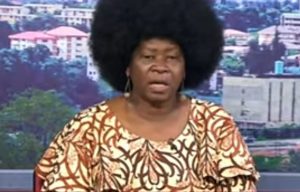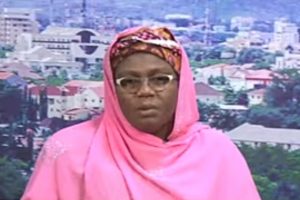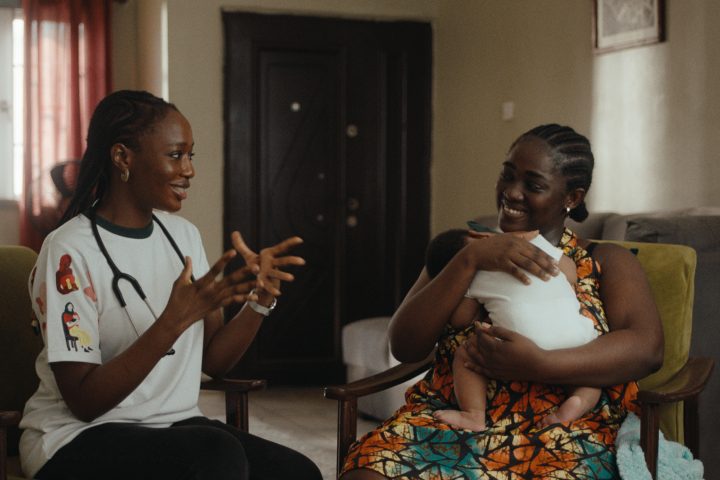With the Federal High Court Abuja ruling on Wednesday that the Federal Government should enforce the National Gender Policy by allocating 35 per cent of appointments in the public sector to women, there are worries that government may not implement the decision.
However, some women activists who participated in the struggle have said if the government at all levels do not implement the judgement, they would go back to court to continue fighting for what is their right.
One of them, Ene Obi, Convener of Nigeria Civil Situation Room and country director, ActionAid Nigeria, said they would continuously engage the government on different fronts to ensure they implement the ruling for the welfare of women and greater good of the society.
Join our WhatsApp Channel
Speaking during an interview on Channels TV SunriseDaily morning programme on Thursday, Obi said, “We will continue to work for the implementation and if they (government) don’t comply with the judgment, it means they think they are above the law and, we’ll go back to court; continue to engage them on several fronts for them to implement it.”
Obi said the court simply compelled the government to do what it ordinarily should have done without much fight for it by the women.
She recalled that Nigerian government is signatory to the Convention on the Elimination of all Forms of Discrimination against Women, and others, noting that all these legal instruments were already protecting rights of women, but there is a lack of political will to implement the action to Improve the status of women in public sector.
A coalition of various gender rights groups alleged that various sections of the Nigeria’s 1999 constitution and other national and international legal instruments on the rights of women have been violated in Nigeria, and in August 2020, filed a suit seeking that 35 percent of appointments in public offices should be reserved for women.
The case was led by Funmi Falana of the Falana and Falana Chambers and other notable legal practitioners.
The Abuja High Court judge who ruled on the matter, Donatus Okorowo held that the Nigerian women have been subjected to all forms of discrimination in terms of appointment into public offices.
Okorowo who upheld the 2006 Affirmative Action for women, granted the reliefs sought by the women groups which included:
“A declaration that the failure of the 1st defendant to implement the 35 percent affirmative action policy of the Federal Government of Nigeria is illegal, unlawful, null and an arbitrary violation of the National Gender Policy, 2006.
“A declaration that the failure of the 1st defendant to implement the 35 percent affirmative action policy of the Federal Government of Nigeria is illegal, unlawful and a violation of sections 42, 147 (3) and 14 (3) of the 1999 Constitution as amended and Article 19 of the African Charter on Human and People’s Rights.
“A declaration that the overwhelmingly predominant appointment of the male gender into decision making positions of the Federation is wrong, unlawful, unconstitutional, null and void as it violates Sections 42,147(3) and 14 (3) of the 1999 Constitution as amended and Article 19 of the African Charter on Human and People’s Rights and does violate the right of the female gender to equal access to public offices.
“An injunction restraining the 1st defendant from further exercising the Constitutional and Statutory power of appointment in a manner violative of the 35 percent affirmative action policy of the Federal Government of Nigeria as contained in the National Gender Policy, 2006.
“An order mandating the respondents to henceforth comply with the principle of equality of the sexes in all appointments in compliance with Sections 42,147 (3) and 14 (3) of the 1999 Constitution as amended and Article 19 of the African Charter on Human and People’s Rights. and any other the court may deem fit in this matter.”
Speaking on the programme at Channels TV also, the Chief Executive Officer, Nigerian Women Trust Fund, Mufuliat Fijabi said the judgment means that there should be a deliberate effort to reserve a minimum of 35 per cent of positions for women in government not only at federal level, but across board.

She remarked that the court judgement would trigger a lot of improvement in the status of women which according her would help in national development as more women with great potentials would be given opportunities to make their inputs.
Fijabi noted that all other gender bills currently at the National Assembly are critical in addressing women’s welfare and called on the lawmakers to ensure that they are passed.
She further stated that all government stakeholders at various levels have obligation to implement the national gender policy.
She said, “It’s an injunction and we know that as law abiding government it should be obeyed. On our own part as civil society organisations, as critical stakeholders, we’ll continue with advocacy and necessary social justice process to ensure that the information gets to all the sectors and that implementation is assured.
Obi said the women rights groups would embark on massive sensitisation of people in different parts of the country about the judgment.
Victor Ezeja is a passionate journalist with seven years of experience writing on economy, politics and energy. He holds a Master's degree in Mass Communication.




















Follow Us